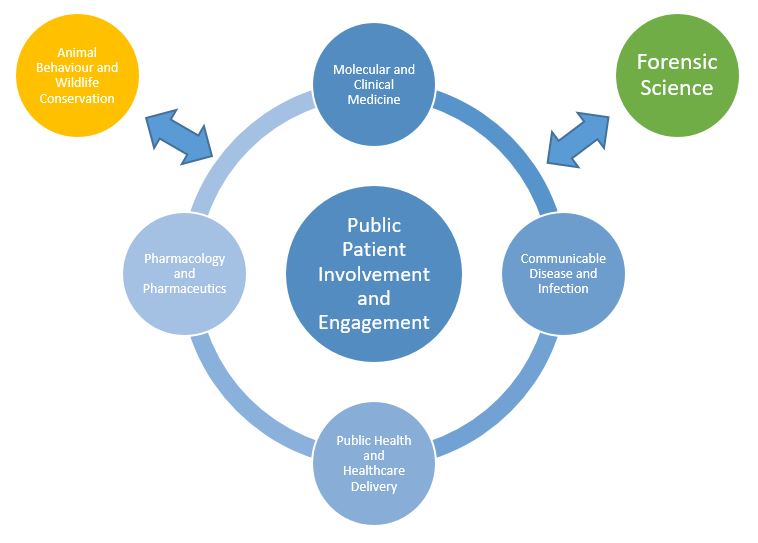
Welcome to the Research Institute of Healthcare Sciences (RIHS)
RIHS fosters and facilitates research in laboratory, translational & clinical science and community & clinical practice to understand human disease at the cellular, individual and populations levels and to use this knowledge to improve survivorship and quality of life and care.
Building dynamic multi-disciplinary research teams and applying collaborative holistic strategies to tackle complex healthcare challenges enables us to translate laboratory and practice-based research quickly and effectively into clinical benefit.
Our research themes:

Spotlight on our research
A team of new professors in Clinical Practice and Medicine have been appointed by the University of Wolverhampton and The Royal Wolverhampton NHS Trust to drive forward medical research in the region - see https://www.wlv.ac.uk/research/about-our-research/impact/clinical-research/.
The STORK Collaborative is a network of interested health care teams working towards reducing risks for newborn and infant mortality though parent, carer and family education and empowerment, using the STORK Programme, in the West Midlands.
About RIHS
For REF 2021 we submitted four Impact Case Studies under Unit of Assessment 3 (Allied Health Professions, Dentistry, Nursing and Pharmacy). These spanned a range of impacts, from contributing to health policy and guidelines, to evidence of direct benefits to patients, and even as far as impacts on art and culture.
Specifically the Impact Case Studies covered the following topic areas:
- In partnership with colleagues from the Centre for Psychological Research, utilising research research on eating behaviour and digestive disorders, we informed national health policy and to underpin the ‘Living in Silence project, which uses various art forms to better inform those from South Asian communities who are living with Inflammatory Bowel Disease (IBD).
- Using our knowledge on working with bereaved families to inform policy and guidance around organ donation across various NHS trusts, as well as large independent organisations.
- In partnership with colleagues from the Sport and Physical Activity Research Centre, we were able to show how exercise can be effectively utilised to benefit the health of cancer patients. Impacts ranged from underpinning the health programme Action Health based from Dudley Group NHS Foundation Trust, to informing best practice documents of various large cancer organisations across the world.
- Our research on clinical communication with patients was used to inform a large variety of health policy documents from key national and international organisations.
The University has invested heavily in the recruitment of research active staff and the provision of high quality research facilities, including a £1.6m investment in provide world-class biomedical science laboratory accommodation and new build support for psychology and exercise physiology research.
There is a distinctive emphasis trying to ensure that the findings of academic research are quickly and effectively translated into clinical practice. And there is close collaboration with local NHS Trusts including the National Cancer Research Institute-funded Black Country Cancer Research Network.


/prod01/wlvacuk/media/departments/digital-content-and-communications/images-2024/240328-Varsity-Line-Up-Resized.jpg)
/prod01/wlvacuk/media/departments/digital-content-and-communications/images-18-19/220325-Engineers_teach_thumbail.jpg)
/prod01/wlvacuk/media/departments/digital-content-and-communications/images-2024/240404-Digital-Humanities-Training-Resized.jpg)
/prod01/wlvacuk/media/departments/digital-content-and-communications/images-2024/240320-Uzbekistan-Resized.jpg)
/prod01/wlvacuk/media/departments/digital-content-and-communications/images-2024/240229-The-Link-Resized.jpg)
/prod01/wlvacuk/media/departments/digital-content-and-communications/images-2024/240411-IYC-Resized.jpg)





